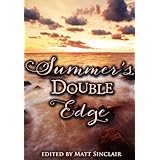As parents, it is our jobs to worry. My oldest child hated to read. Every word that made it from paper to his brain was a fight. Oh, he’d listen to me read all day long, but getting him to pick up a book on his own was akin to torture. One exception was C.S. Lewis and other classics like White Fang. Tough books for a little boy with dyslexia.
But this wasn’t the first time I’d had to worry extensively about him or my other kids. Like any good mom, my kids’ eating habits were of utmost concern.
When Eldest was about a year and a half old, all he ate were strawberry Poptarts and bananas. And I do mean this literally. My lovely doctor assured me it was just a phase and that Poptarts were heavily fortified enough to see him through to the next love. My Dear Daughter, on the other hand, was a yogurt fanatic. She loved all things dairy to the point of refusing infant formula. She went straight from mama’s milk to moo milk at six months old–and Lord, did that cause a stir. Seven years later Youngest devoured oatmeal by the gobs. He had a bowl every morning and one every night before bed, often times supplementing his daily menu with a snack or two in between. If I had a penny for every time someone told me he would get fat from all the carbs, my Dear Hubby could retire
The only one who didn’t have a phase was our Middle son. At about eight months old, Middle had gotten so sick that he nearly didn’t make it through the severe dehydration caused by his multiple-infection diagnosis. For the next few years, he subsisted off of McDonalds’ shakes just to keep his calorie intake up and help close the growth gap created by the side-effects of his illness. Doctor’s orders. As you can imagine, he was a seriously picky eater. (Right, Dave Homann?) Not to mention, we were seriously concerned parents. All despite having other children with quirky eating habits not only survive, but thrive.
I have no idea if Eldest eats Poptarts or bananas, though I suspect many of the former and few of the latter. He is a college kid, after all. DD can’t stand the texture of yogurt, and Youngest still uses oatmeal as a bedtime snack more often than not. Middle likes anything not from McDonalds–with lemon peppered asparagus & brussel sprouts as a current fave.
Tastes change. Or not. And that’s okay. But what we don’t’ have to do is stress over the evolution. Change can be good. The journey even better.
We are blessed with a lifetime to try new flavors and textures. Opportunities abound to stretch our experiences and fall in love with new foods. So, too, are readers capable of changing literary loves.
As a voracious reader of mysteries in my childhood, I still appreciate a good thriller with a tangled web of deceit and a healthy dose of red herrings. I’ve also grown to love nonfiction. But only medical or history based nonfiction. Give me a 1,000 page tome on the history of rabies and I’m like a kid with the whole candy store at my disposal…or should I say consumption?!
Crime novels were once my Poptarts and bananas. While most romance novels are akin to the goopy texture of Greek yogurt.
My bookshelves are filled with a vast palate of literature ranging from the classics to YA to pulp fiction. And that’s better than okay. Diversity is good, even if we have to go through picky phases to get there.
So, don’t be too harsh on your children for not eating their peas or not loving to read. Tastes change. It is our job to support the journey and expose ourselves and our kids to unique and continuous opportunity, be it music, food, athletics or literature.
Once upon a time, Eldest struggled to read. Now, he is rarely without a book.
How has your palate changed? What are your current faves (of anything) and why? If you are a writer, how has this affected your writing journey?
Curious minds want to know.



